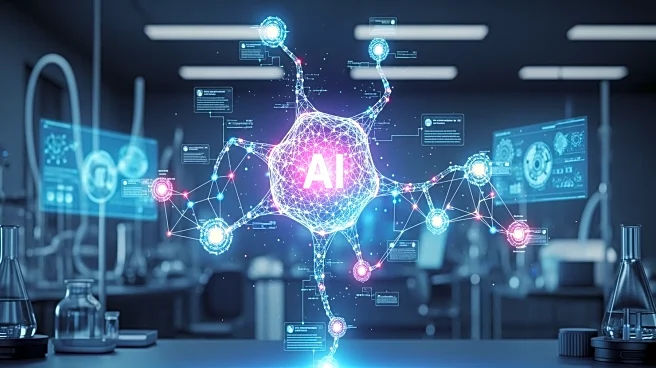What's Happening?
Addepally Uma, PhD, from the University College of Engineering, Science & Technology, Hyderabad, India, has co-authored a study highlighting the potential of artificial intelligence (AI) to optimize vaccine production processes. The study suggests that
AI can help reduce costs by predicting optimal conditions for vaccine manufacturing, such as culture conditions and purification parameters. AI-driven systems can also facilitate predictive maintenance, reducing equipment failure rates and improving process robustness. The integration of AI in vaccine production is expected to streamline operations, minimize waste, and enhance the overall efficiency of vaccine manufacturing.
Why It's Important?
The application of AI in vaccine production could significantly lower costs and increase accessibility to vaccines, which is crucial for public health. By optimizing manufacturing processes, AI can help overcome challenges associated with complex biological systems and reduce the financial burden of vaccine production. This advancement could lead to more affordable vaccines, improving global health outcomes and enabling wider distribution, especially in low-income regions. The ability to predict and prevent equipment failures also enhances the reliability and sustainability of vaccine production facilities.
What's Next?
The study indicates that AI-driven process optimization and predictive maintenance are poised to become integral components of vaccine manufacturing. As AI technology continues to evolve, its application in bioprocessing is expected to expand, potentially leading to further innovations in vaccine development and production. The next steps involve implementing AI systems in real-world vaccine production settings and evaluating their impact on cost reduction and efficiency improvements.
















